Discover Dental As Anything
Dental As Anything

Dental As Anything
Author: Matt Hopcraft
Subscribed: 5Played: 113Subscribe
Share
© Matt Hopcraft
Description
Dental As Anything is a podcast to share insights and opinions on a wide range of topics related to dentistry (and beyond), exploring critical issues that affect oral health across the community. It is a valuable resource for dental professionals and anyone interested in the intersection of dentistry, public health and wellbeing. Hosted by Matt Hopcraft, dentist & public health academic.
46 Episodes
Reverse
The biggest issue with artificial intelligence isn’t that it makes mistakes, it’s that it has the potential to make mistakes at scale at the same time that people are trusting it to be infallible.Technology usually progresses at a speed that outpaces existing regulation and legislation, and we are then forced to play catch up when the cat is already out of the bag. This is complicated by a tech sector that is becoming increasing powerful and transnational, making regulation more difficult.The proliferation of artificial intelligence tools in healthcare broadly, and in dentistry specifically alongside the propensity of many practitioners to be technological minded early adopters, has the potential to be a gamechanger. But as we know, games can be both won and lost.The Therapeutic Goods Administration recently published a report on regulating medical software devices including artificial intelligence and the Australian Commission on Safety and Quality in Healthcare has created resources on the safe and responsible use of artificial intelligence in healthcare.We need to understand the capability – and perhaps more importantly the reliability and reproducibility – of the tools that we are using. Ambient AI scribes listen in to a patient consultation to transcribe notes, but they can make mistakes and provide inaccurate or nonsensical outputs. This is an intrinsic characteristic of generative AI tools. They fabricate diagnoses, omit or add steps in treatment plans, and confuse similar words like ‘medication’ and ‘mediation’ or ‘meditation’.AI still struggles with complexity in a way that humans do not. Clinicians have – or at least should have – an ability to understand the nuance in a conversation, which includes interpreting non-verbal cues. Are digital scribes capable of doing that? How often are we checking the accuracy and veracity of the transcription? And if we don’t, what is the possibility of errors finding their way into the clinical record – and what is the potential impact of that?In this episode of the Dental As Anything podcast I talk about the issues of regulation of artificial intelligence in healthcare, and the importance for practitioners in understanding not only the potential limitations of AI tools, but also their ethical and legal obligations when using such tools.
Dental caries continues to be one of the most important public health problems in Australia, and particularly for Australian children. One in three children experience tooth decay in their baby teeth by the age of 5-6 years and 40% in their adult teeth by the age of 12-14 year, and it is the leading cause of preventable hospitalisations amongst Australian children. So early detection and prevention are critically important – at both a public health and individual patient level.New research published this week shows potential new applications for 3D intra-oral scanning with fluorescence as a tool to enhance the early detection of tooth decay. It is particularly useful to enable a comprehensive dental assessment for children who are only able to tolerate a brief or limited time in the dental chair, and may have telehealth applications for people living in rural and remote areas.This week on the Dental As Anything podcast I speak to Dr Bree Jones. Bree is a dental academic and researcher at the Melbourne Dental School with expertise spanning public health, diagnostic innovation, education, and sustainability. She holds a Bachelor of Science, Bachelor of Oral Health, Graduate Certificate in Dental Therapy (Advanced Practice), Master of Public Health, and PhD.She is the lead author of this paper which found that on-screen assessment of 3D models in colour showed strong agreement with a standard clinical visual examination for caries detection at different disease thresholds - from early lesions through to more extensive disease. 3D intra oral scanning might be a feasible alternative to traditional in-person clinical examination for research, monitoring and population level surveillance.
Advocacy is an important part of our role in the dental profession, but often feels like a thankless task. I recently spent the day in Canberra courtesy of the Australian Dental Industry Association who hosted a parliamentary roundtable on the dental industry.This week on the Dental As Anything podcast I give you a peak behind the curtains to hopefully gain some insight into what actually happens, how oral health is viewed in Canberra and perhaps why progress isn’t as quick as we would like (but why there is hope on the not too distant horizon).
With recent talk about expanding Medicare to include more dental services, it’s worth revisiting the last time that this was done with the Chronic Disease Dental Scheme, which ran from 2008 to 2013. The scheme delivered nearly $2.8 billion in dental treatment, highlighting the value of the scheme in improving access for necessary dental care as well as evidence of pent-up demand. However, the Chronic Disease Dental Scheme became politicised and was controversially brought to a close in 2013 amidst allegations of rorting by dental practitioners and cost blow-outs.Myths about the scheme, particularly the reasons for its closure, persist to this day, making ongoing advocacy efforts to improve access to dental care much more difficult.This week on Dental As Anything I talk to Professor Hans Zoellner, former head of Oral Pathology at the University of Sydney. He formed the Association for the Promotion of Oral Health, a think-tank and advocacy group to improve oral health, and was outspoken in his support for the Chronic Disease Dental Scheme. He has provided evidence to various state and federal parliamentary inquiries and published research on the utilisation of the scheme highlighting how it was functioning to meet an important community need.
Opioid prescribing by Australian dentists has increased over the past decade, although the quantity dispensed has reduced. New research highlights some concerning trends with significant implications.In this episode of the Dental As Anything podcast I speak to Associate Professor Leanne Teoh about her latest study and the implications for the dental profession. Leanne is a pharmacist, practising dentist and academic at the Melbourne Dental School.She has a strong interest in dental prescribing and developed MIMS Drugs 4 Dent as a clinical decision tool for dental practitioners and co-authored Therapeutic Guidelines Oral and Dental Version 2.
We make snap judgements about people based solely on their appearance, and draw negative assumptions about people with visibly poor oral health, contributing to shame, stigma and even bullying.The face is the window to the soul. Our physical appearance,particularly that of our smile, often dictates people’s first impressions of us. And first impressions flow through to behaviours – to how people treat us. And as we know, first impressions are hard to shake. That is why the dentalprofession has been shifting over time from one that has been solely focused on disease and function to one where appearance and aesthetics are key, both responding to and driving patient demand. But what of the people who sufferfrom poor oral health, and who struggle to access dental care?Two recent research papers piqued my interest, one looking at the issue of bullying related to tooth loss in Australian children, and the other an exploration of the issue of dental shame. They get to the heart of this idea that good oral health is fundamental to our appearance and to our self-esteem.We know this is important, because it is almost impossible to hide your dental condition from others during any form of social interaction. It’s why poor oral health is probably one of the most obvious and visible signs of poverty and disadvantage.In this episode of the Dental As Anything podcastI talk about the social and psychological impact of poor oral health and the importance of thinking more broadly about the impacts for people who cannot access dental care.References:Does Tooth Loss Lead to School Bullying? Evidence from the Longitudinal Study of Australian ChildrenDental Shame: A Call for Understanding and Addressing the Role of Shame in Oral Health
A new study has looked at the media coverage and the implications for the dentistry, particularly in terms of societal attitudes towards dental health and the dental profession.The recent trend of dental practices promoting the use of superannuation for dental treatment has become a hot topic issue in the dental profession over the past few years. From $108 million in 2020-21 to $526 million last year, the scale of use in dentistry far exceeds the other areas where superannuation is being withdrawn on compassionate grounds.Now, a new study Supercharged Smiles: A Discourse Analysis of Australian Media Coverage of Funding Dental Care Through Superannuation published in the Australian Dental Journal has looked at how the media has reported this phenomenon. Professor Alex Holden from the University of Sydney examined 36 media articles written by 25 different authors across 18 media platforms published between 2022 to 2025. Across all the media articles that were reviewed, there was a predominantly negative discourse which highlights the ethical, social, and professional challenges that early superannuation release presents to dentists, patients and the broader community, as well as policy makers.At the top level, there were three main themes that emerged from the 36 articles. The first was one of outrage at the necessity that patients were forced to use their retirement savings to pay for essential dental care, the second was about the exploitation of vulnerable patients by some dentists and the final theme was about abuse of the system by patients and dentists for elective and cosmetic dental treatment, when the guidelines are pretty clear about the criteria for use.In this episode of the Dental As Anything podcast I talk about this new study and the narrative that has emerged about this scheme, and the importance of the dental profession in taking an active stand on this issue.
How much did you pay for your dental degree? Were you one of the lucky ones who received a free education? Did you come in during the early days of student fees in the early 1990s when $10,000 was enough to cover the tuition fees for dental school? Or are you a recent graduate or current student at a graduate entry school in a full fee paying place, paying more than $80,000 per year for your dental degree, on top of the twenty odd thousand dollars you paid for your undergraduate degree?As the cost of a dental degree at some Australian universities passes $400,000, there are clearly implications for potential students, graduates and the broader community.This week on the Dental As Anything podcast I talk about the burgeoning cost of dental education, and the implications for both graduates and the broader community.
What does the Australian constitution say about the powers of the Commonwealth to provide dental services and what impact might that have on the dental profession in the context of expanding Medicare?Medicare and dentistry is in the news again now that the new Commonwealth parliament has commenced, with the Greens vowing to use their balance of power in the Senate to pressure the government to add dental care into Medicare.One of the common concerns from dentists about Medicare funded dentistry is the impact on their earnings and the profitability of their business due to low rebates. It is also invariably linked to the spectre of NHS-style dentistry and the deterioration of clinical outcomes for patients. There are assumptions about the power and reach of the government to control the dental profession if Medicare is expanded to include some dental services.In this episode of the Dental As Anything podcast, I discuss the history of the amendment to the Australian constitution which gave the Commonwealth the power to legislate for the provision of medical and dental services, and what the civil conscription clause means in the context of options for reform of public dental funding.Section 51xxiiiA: The Parliament shall, subject to this Constitution, have power to make laws for the peace, order, and good government of the Commonwealth with respect to: the provision of maternity allowances, widows’ pensions, child endowment, unemployment, pharmaceutical, sickness and hospital benefits, medical and dental services (but not so as to authorize any form of civil conscription), benefits to students and family allowances.
Dentistry is a $12 billion a year industry and growing, making it a valuable target for private equity investment. But what are the implications for patients when others seek to profit from healthcare?A recent article in the Australian Financial Review reported large dental chain Dental Boutique had appointed Morgan Stanley and Gilbert + Tobin to sell their business. It is part of a growing trend both here in Australia and internationally for the consolidation and corporatisation of healthcare businesses, and in particular for private equity funds to buy into healthcare.But is raises some important questions about whether this is a good thing, and who profits from healthcare?A recent scoping review on the role of private equity in health found that there were both positive and negative impacts on health outcomes, staffing and costs, but importantly found no evidence of consistently positive effects of private equity in health.In this episode of the Dental As Anything podcast, I explore the issue of private equity investment in the dental industry, noting trends in dentistry from the USA (where 1 in 8 dentists are now associated with private equity) and trends in the medical profession in Australia.
Trust is essential to the normal function of society, yet it is perhaps not something that we spend a lot of time thinking about until it’s gone. Long term data on trusted professions shows that dentists rank in the top 5 – behind nurses, doctors, pharmacists and teachers, although trust has been declining since peaking in 2017.In this episode of the Dental As Anything podcast, we discuss the important issue of trust - what it is, why it’s important and why we are seeing a gradual erosion of trust - in individuals and institutions. Rebuilding trust requires accountability, high standards of honesty and integrity, openness and transparency and most importantly good communication. Ultimately, building and maintaining trust is important for everyone, and therefore is everyone’s responsibility.
In this episode of the Dental as Anything podcast I talk about our new paper Oral Health Meets Commercial Determinants: An Opportunity to Bridge Individual and Structural Approaches published this week in the Australian Dental Journal with colleagues from the University of Sydney and Deakin University. We highlight the role of structural and commercial factors, operating outside an individual's control, that drive the high prevalence of oral disease and inequities at a population level, and argue that dental practitioners must also consider the broader commercial forces which contribute to oral disease in order to make meaningful steps in reducing inequities in the burden of oral diseases.
New guidelines on cosmetic procedures and a statement on the use of superannuation for dental treatment have again shone the light on ethical conduct and the tension between business and healthcare.In the past week Ahpra has released two guidelines and a joint statement with the Dental and Medical boards which highlight some ethical challenges facing the dental profession. They come off the back of a series of stories, and no doubt complaints and notifications, regarding cosmetic procedures and the compassionate release of superannuation.In this episode of the Dental as Anything podcast I talk the new Ahpra guidelines on cosmetic procedures and the implications for dental practitioners, and our role more broadly in upholding ethical standards to maintain trust in the profession.
What do we do when a dental practitioner breaks the trust of patients? Should we discuss that within the profession? What happens when those cases are picked up by the media and talked about in the public sphere? Should we engage in the discussion or try and shut it down.In this episode of the Dental as Anything podcast I talk about the vexed issue of the early release of superannuation, over-servicing, the role of the media in reporting stories of interest, and how the dental profession should respond.
Health is inherently political . Like any resource or commodity in our neo-liberal economic system, some social groups have more of it than others. We also know that the social and commercial determinants of health – more than just individual behaviours – are amendable to political interventions.In this episode of the Dental as Anything podcast I talk about the history of expanding Medicare to include more dental services, the broader support and advocacy for schemes such as Senior Dental Benefits Scheme and the important role of research in supporting advocacy efforts.References:Australian dental practitioner attitudes to expanding Medicare to include more dental services World Dental Federation. Universal Health Coverage - Oral Health for All (Fact Sheet)What is universal health coverage?
We often talk about the pros and cons of water fluoridation through the lens of benefits versus the risk of harm. But it's also important to understand the broader public health ethical considerations.Last month, Utah became the first state in the USA to ban fluoride in public drinking water and just last week a local mayor in Florida vetoed a county decision to remove fluoride, pushing back a little against a vote that seemed more about politics than health. In Australia we recently saw Cook Shire Council in far north Queensland also vote to cease water fluoridation.What we are seeing is a distortion of public health ethics – allowing a small number of fellow citizens to impose a disadvantage on the community at large for the sake of protecting their individual autonomy.In this episode of the Dental As Anything podcast we explore some of the ethical principles that underpin public health measures, moving beyond beneficence and non-maleficence to consider how we balance individual autonomy with the broader public good, and the role of justice.
In this episode of the Dental As Anything podcast I talk to Dr Brooke Nickel, an NHMRC Emerging Leader Research Fellow at the University of Sydney School of Public Health. Brooke is an expert in evidence-based healthcare communication and decision making, with a particular focus on the issue of overdiagnosis. She recently led a study reporting on how social media posts have the ability to influence over-diagnosis.We talk about the importance of health literacy, how social media and influencers are shaping patient behaviours and our role in fighting back against misinformation in the public domain.
Medicare is meant to help all Australians access affordable healthcare guaranteeing them access to a wide range of health and hospital services at low or no cost. Except if you have a dental problem.Today is World Oral Health Day, a chance for the dental profession to steal the spotlight for 24 hours and shine a light on the importance of oral health. I’m using it to call for a seismic shift that is needed in Australia to make access to dental care more affordable by launching the Give Medicare Teeth campaign in the lead up to the federal election. It is important that we don’t let dental care continue to be the forgotten issue yet again.You can go to the campaign website for more information and use it to send an auto-generated email to your candidates in the upcoming election, or engage with them on social media.In this episode of the Dental As Anything podcast we explore the concept of universal health coverage and the need to reform dental funding in Australia.
Dentists. What makes us tick? For many people, a trip to the dentist at the top of the list of things they would prefer not to do. Makes you wonder why anyone would decide to be a dentist at all.In this episode of the Dental As Anything podcast we talk to dentist and author Max Lee about his new book ‘Why am I a dentist? A search for clarity and meaning.’ Max is a general practitioner who works in private practice in Victoria, having previously spent time working as a dentist in Singapore. Max reflects on his journey from dental school to a new graduate dentist in a foreign country, and highlights some of challenging experiences and darker periods in his career, and how that has shaped the person - and health professional - that he is today.The book is available at Amazon, Booktopia and other online retailers.
Why is it so hard for the more than 1 in 4 Australians who live outside of capital and major cities to access dental care? And how much is that a factor that contributes to the higher burden of disease we see in regional and rural communities?In 2023, 74.3% of the population lived in major cities across Australia, and dentists disproportionately work in these areas. That means for one quarter of the population, access to dental care - both treatment and importantly prevention - is compromised.In this episode of the Dental As Anything podcast we explore some of the factors that contribute to this maldistribution and look at some of the solutions that have been tried to address this.


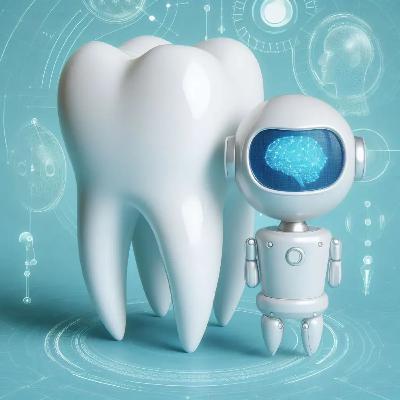



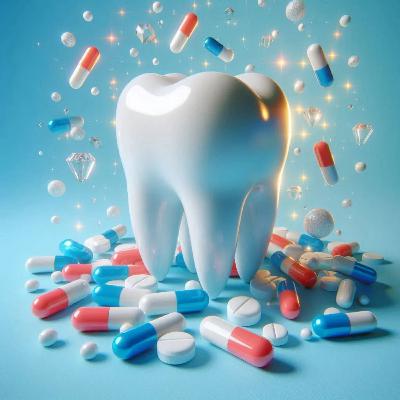
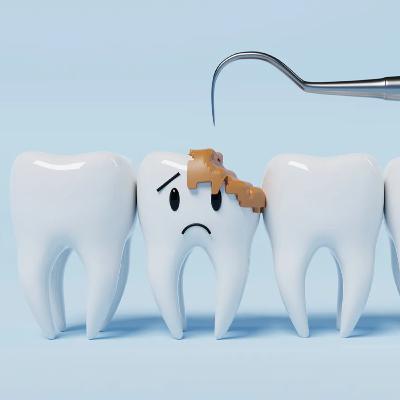
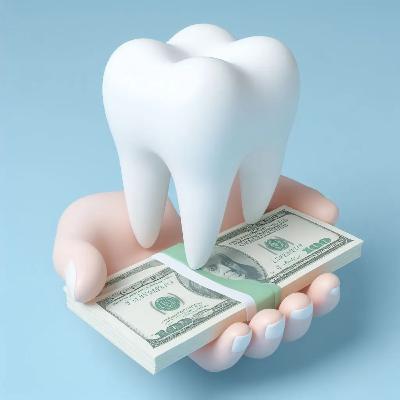
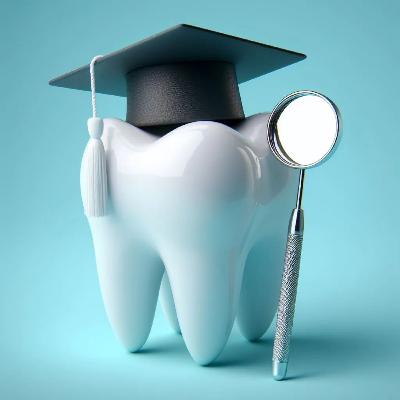
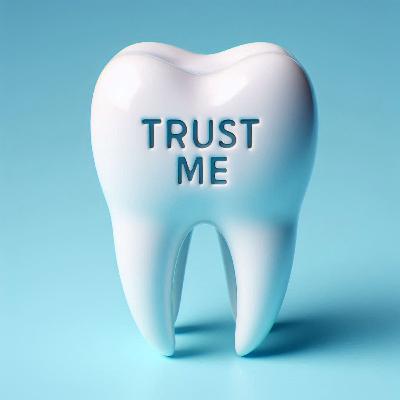
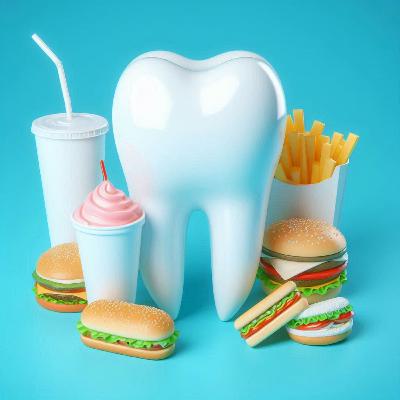
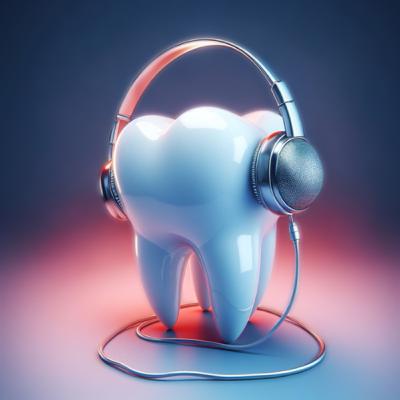
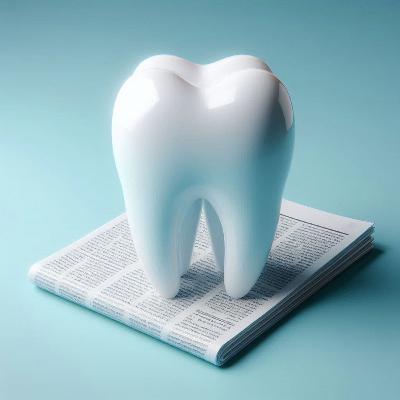
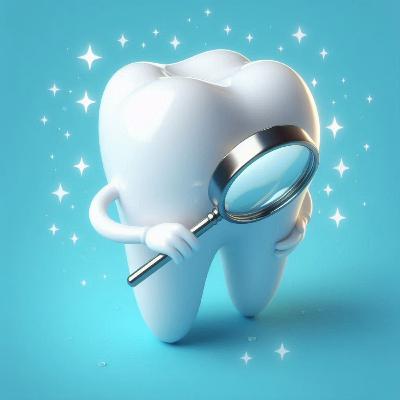
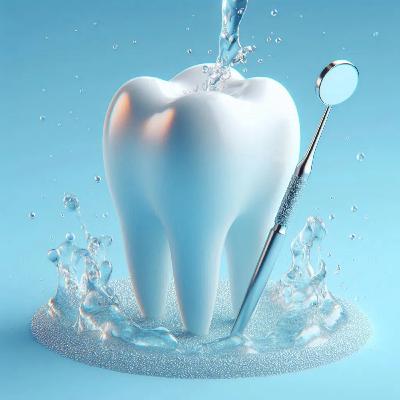
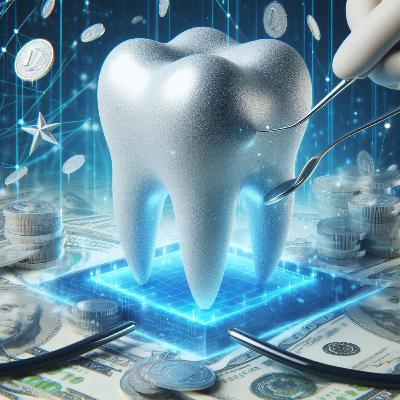
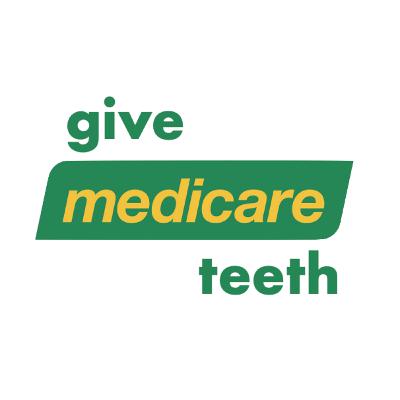
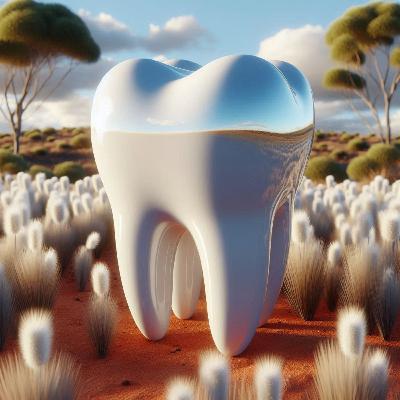



Dental services offer numerous benefits that extend far beyond just maintaining a bright smile. Regular visits to the dentist can play a critical role in preserving oral health and preventing a wide range of dental issues. From basic preventive care to more specialized treatments, dental services provide comprehensive care that helps keep your teeth, gums, and overall oral system in top condition by https://healthysmiledentalhygiene.ca/ .